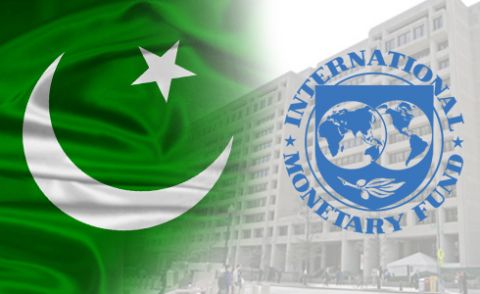
The International Monetary Fund (IMF) has warned that Pakistan’s economic vulnerabilities and crisis risks were high.
Islamabad, Sept 13/Nationalturk – The International Monetary Fund (IMF) has said that Pakistan’s economic performance has been substandard and warned that country’s economic vulnerabilities and crisis risks were high.
“Economic performance in Pakistan has been substandard in recent years. GDP growth has averaged only 3 percent over the past five years, which is insufficient to significantly improve living standards or fully absorb the growing labor force. Severe problems with the electricity supply, a difficult security situation, the presence of loss-making public sector enterprises in key economic activities, a poor business climate, and a distorted trade regime have been important factors in anemic growth,” said a statement issued by IMF.
It said headline inflation in the country has fallen sharply in recent months, but underlying inflationary pressures remain. “The external position has weakened significantly and central bank reserves have declined to US$6 billion (below 1½ months of imports) as of end-June 2013. Pakistan rupee depreciated around 5 percent against the dollar during the Fiscal Year 2012/13 (July-June), leaving the real effective exchange rate roughly unchanged”.
On September 5, the IMF agreed to extend Pakistan a three-year $6.7 billion loan, making an initial disbursement of $540 million available to the authorities. The loan is aimed at reducing Pakistan’s fiscal deficit — which neared nine percent of the gross domestic product last year — to a more sustainable level and reform the energy sector to help resolve severe power cuts that have sapped growth potential. But future disbursements are dependent on the completion of tough economic reforms measured at quarterly reviews.
‘Revenue shortfall due to underperformance in tax collections’
“The 2012/13 fiscal deficit (excluding grants) is estimated to be 8 percent of GDP, well above the original budget target of 4.7 percent of GDP due to slippages on both revenues and expenditures. The revenue shortfall is largely explained by the underperformance in tax collections in the previous fiscal year, inadequate tax administration, and a slowdown in economic activity. Higher expenditures reflect higher energy subsidies, including clearing the power sector arrears. Moreover, the provincial surplus envisaged in the budget has not materialized. With very low external financing, the deficit has been almost entirely domestically financed,” stated IMF.
It further said Pakistan’s monetary policy continued to be accommodative to lift weak private investment and growth, in light of falling headline inflation. “In 2012/13, the policy rate has been cut repeatedly by a cumulative 300 basis points to 9 percent, while direct financing of the large fiscal deficit continues to drive growth in monetary aggregates. However, this accommodative policy did not bear fruit in terms of private sector stimulus—private credit shrank in real terms.”
‘Unreliable electricity, difficult security situation contributed to economic deterioration’
IMF’s Executive Directors noted that Pakistan’s economic vulnerabilities and crisis risks are high, with subpar growth and unsustainable fiscal and balance of payments positions. “A lack of reliable electricity supply and a difficult security situation in large parts of the country have contributed to the deterioration.”
The Directors stressed that short-term measures must be complemented by significant reforms in fiscal management, the monetary policy framework and financial markets, the energy sector, public sector enterprises, the business climate, and trade policy.
“Further consolidation will be required to ensure fiscal sustainability. While the 2013/14 federal budget represents an important initial step, a more efficient and equitable tax system is needed, and a significant increase in the tax-to-GDP ratio will be key to create room for social and investment spending while lowering the deficit. This will involve broadening the tax base through a reduction in exemptions and concessions, the extension of taxation to areas not fully covered by the tax net, and an overhaul of tax administration,” the directors said and underscored that fiscal sustainability can only be achieved if the provinces are full partners in the adjustment effort.
They commended the authorities for their firm commitment to boosting targeted income support programs, and encouraged a gradual expansion of coverage and benefits as savings from energy tariff adjustments and fiscal space are realized.
Write your comments and thoughts below
Faiz Ahmad / NationalTurk Pakistan News
[adrotate banner=”46″]
